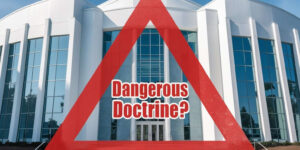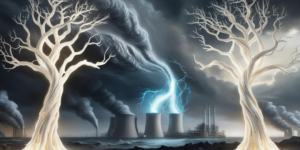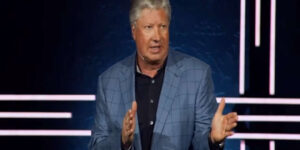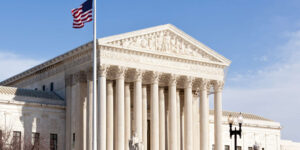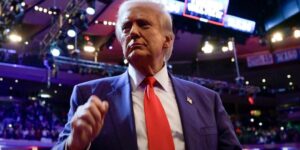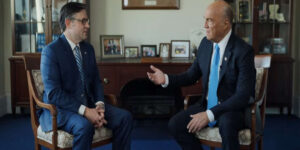Is the Next Great Awakening Launching from Asbury Revival?
The revival at Asbury University in Wilmore, Kentucky, has revived the hopes of many that America is on the verge of another Great Awakening. Feb. 22 is George Washington’s birthday and there is something very instructive from the life and career of Washington that potentially runs parallel to the revival that has erupted at Asbury, and is now spreading to other colleges and universities.
Here is the potential parallel I am suggesting. Washington and the other Founders were prepared for their historic role in the founding of America by the First Great Awakening. Since the current revival is occurring on college and university campuses, is it possible that God is sending another Great Awakening to prepare a new generation of leaders for a rebirthing of America?
There is no question that Washington and every Founding Father were, to one degree or another, impacted by the First Great Awakening. The late Harvard professor, Perry Miller, said, “The Declaration of 1776 was a direct result of the preaching of the evangelists of the Great Awakening” (Hyatt, “1726: The Year that Defined America,” 105).
Benjamin Rush (1746-1813), a Philadelphia physician, member of the Continental Congress and signer of the Declaration of Independence, attributed the development of his thinking and ideals to the preachers of the Great Awakening. In his autobiography, Benjamin Franklin (1706-90) tells of his friendship with the most famous preacher of the Awakening, George Whitefield, and how he attended his meetings and financially supported his ministry (Hyatt, “America’s Revival Heritage,” 69).
Washington’s Deep and Living Faith
Although he never mentions the Great Awakening per se, Washington’s life, prayers and faith are characteristic of those whose lives were dramatically transformed during the Awakening. It is a fact that the Awakening, which began in 1726, had a particularly profound impact on the state of Virginia where Washington was born on Feb. 22, 1732.
This was confirmed by Charles Hodge (1797-1878), Professor of Biblical Literature and Systematic Theology at Princeton University, who gave an account of the Awakening in a pamphlet he wrote on the history of Presbyterian Church in America. He said, “In no part of our country was the revival more interesting, and in very few was it so pure as in Virginia” (Hyatt, “1726: The Year that Defined America,” 131).
Among the many indications of Washington having been profoundly impacted by the Awakening is a little prayer book that was discovered among his personal belongings in 1891. Called “Daily Sacrifice,” it is filled with daily prayers in Washington’s handwriting when he was in his twenties. One of the first entries reads,
Direct my thoughts, words, and work, wash away my sins in the immaculate blood of the Lamb, and purge my heart by Thy Holy Spirit . . . daily frame me more and more in the likeness of Thy Son Jesus Christ (Hyatt, “America’s Revival Heritage,” 72).
Commenting on this prayer book, Professor S. F. Upham, of Drew Theological Seminary, wrote:
“The ‘Daily Prayers’ of George Washington abound in earnest thought, expressed in simple, beautiful, fervent, and evangelical language. They reveal to us the real life of the great patriot and attest to his piety. The prayers are characterized by a deep consciousness of sin and by a need for forgiveness, and by a recognition of dependence upon the merits and mercies of our Lord” (Hyatt, “1726:The Year that Defined America,” 132-33).
“It is, therefore, not surprising that when Washington was commissioned as commander-in-chief of the colonial army, one of his first acts was to issue an order that each day was to begin with prayer led by the commanders of each unit. He also forbade profanity, swearing, gambling and drunkenness and expressed his desire that, ‘Every officer and man will endeavor so as to live and act as becomes a Christian soldier'” (Hyatt, “1726:The Year that Defined America,” 114).
“Rev. Henry Muhlenberg (1711–1787), pastor of a Lutheran Church adjacent to Valley Forge where Washington and is men were quartering one winter, observed Washington’s activities and wrote, ‘Washington rode around among his army yesterday and admonished each one to fear God'” (Hyatt, “1726: The Year that Defined America,” 115).
A Jesus-Centered Faith
After the surrender of General Cornwallis at Yorktown, Washington sent a letter, dated June 14, 1783, to the governors of the various states in which he urged them to make Jesus their role model for life. He exhorted that we must all:
“Demean ourselves with that charity, humility, and pacific temper of mind, which were the characteristics of the Divine Author of our blessed religion, and without a humble imitation of His example in these things, we can never hope to be a happy nation” (Hyatt, “1726: The Year that Defined America,” 120).
In a meeting with chiefs from the Delaware tribe, Washington politely and boldly recommended Jesus to them as the key to their happiness. The chiefs had come to meet with Congress, and they brought with them three of their youth, asking that they be educated in American schools.
Washington addressed the chiefs as “Brothers” and expressed his hope that the Delaware would “become one people with your brethren of the United States.” He assured them that Congress would look upon their youth “as their own children.” He then said,
“You do well to wish to learn our arts and our ways of life and above all, the religion of Jesus Christ. These will make you a greater and happier people than you are. Congress will do everything they can to assist you in this wise intention” (Hyatt, “1726: The Year that Defined America,” 172).
Many historians recognize in the Washington and the Founders an unusual collection of brilliant minds at one time in history. Even Frederick Douglass, the former slave and famous abolitionist, lauded the Founders in a July 4th, 1852 speech, saying,
“I am not wanting in respect for the fathers of this Republic. The signers of the Declaration of Independence were brave men. They were great men too—great enough to give fame to a great age. It does not often happen to a nation to raise, at one time, such a number of truly great men” (Hyatt, “America’s Revival Heritage,” 86).
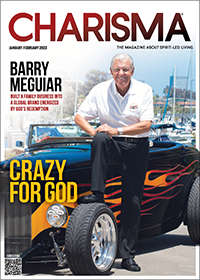 This Awakening Could be Historic
This Awakening Could be Historic
The First Great Awakening played a vital role in preparing Washington and his colleagues for their historic role of birthing the freest and wealthiest nation in the history of mankind. With this present Awakening impacting young people on college and university campuses, let us pray with faith and hope that God will continue His work and raise up a new generation of leaders for a rebirthing of America. {eoa}
Bring Charisma magazine home with a subscription today!
Dr. Eddie L. Hyatt is an author, historian and biblical scholar who has written extensively about America’s history of Spiritual Awakenings. This article was derived from his books America’s Revival Heritage and 1726: The Year that Revived America, available from Amazon and his website at http://eddiehyatt.com.
















